News
Toxic elements found in some US soft drinks
19 May 2023
Some US fruit juices and plant-based milks contain heavy metals and toxic elements above US federal drinking water standards, according to a new study – but most products are within safe limits.
Researchers from Tulane University tested 60 commonly drunk beverages and found that five of them contained levels of a toxic metal above US federal drinking water standards.
The sample of 60 products included single and mixed fruit juices, plant-based milks, sodas, and teas.
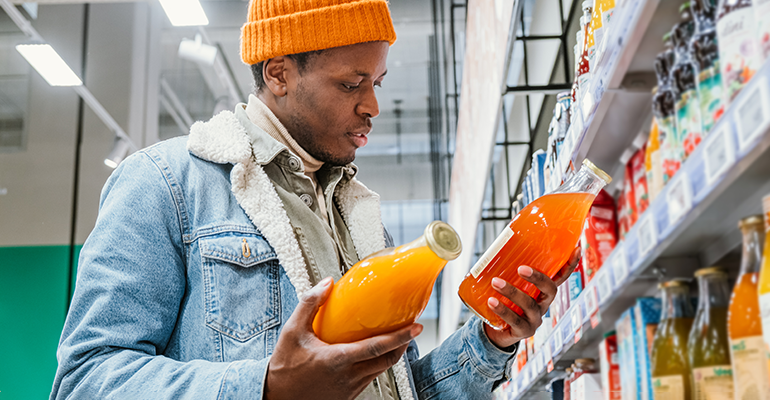
Two mixed juices had levels of arsenic above the 10 microgram per litre standard. A cranberry juice, a mixed carrot and fruit juice, and an oat milk each had levels of cadmium exceeding the three parts per billion standard, the scientists found.
Lead was detected in more than 93% of the 60 sample although most contained very low levels, below 1 part per billion, according to the study, published in the Journal of Food Composition and Analysis.
Toxicity is unlikely with moderate consumption
“Mixed fruit juices and plant-based milk frequently contained elevated concentrations of most of the elements,” the scientists wrote in their conclusion. “While toxicity is unlikely unless individuals consume a large volume, moderating consumption of these beverages is required, especially to protect infants and young children. Regular monitoring of these chemicals in beverages is required for food safety and to provide sound nutritional advice.”
Tewodros Godebo, lead author and assistant professor of environmental health sciences at Tulane University School of Public Health and Tropical Medicine, said it was surprising there weren’t many studies evaluating the presence of toxic and essential elements in US soft drinks.
He added that the amount of toxic elements in the products were unlikely to pose a health risk to adults as they tended to be consumed in smaller quantities than water. However, there could be a concern for children, he said.
Avoid giving high quantities to children and young infants
“People should avoid giving infants and young children mixed-fruit juices or plant-based milks at high volume,” Godebo said. “Arsenic, lead, and cadmium are known carcinogens and well established to cause internal organ damage and cognitive harm in children, especially during early brain development."
Most of these elements found in beverages are believed to come from contaminated soil. The main sources of toxic metal contamination in soil and foods are linked to urbanisation and industrialisation, through the extensive use of fossil fuels, fertilisers, and metal-based pesticides during farming processes.
Tulane University student Hannah Stoner who participated in the study, said consumers need not fear but called for more research into the topic.
“In toxicity, it’s the dosage that often makes the difference so everything in moderation. But this creates awareness that there needs to be more study,” she said.
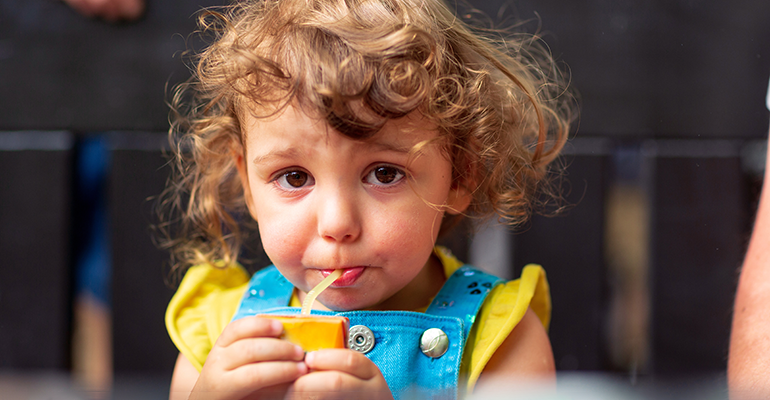 © AdobeStock/Ljiljana
© AdobeStock/Ljiljana
Chocolate and infant food also in the food safety spotlight
Products in other food and drink categories have been found to contain heavy metals.
In 2021, a report published by the US House of Representatives’ Subcommittee on Economic and Consumer Policy found that commercial baby foods are tainted with “significant levels” of toxic heavy metals, including arsenic, lead, cadmium, and mercury.
The findings prompted class action lawsuits against the food manufacturers and led to the US Food and Drug Administration (FDA) proposing limits on lead in processed baby food this year. Public health campaigners criticised the proposed levels, however, on the grounds they are voluntary and not low enough to sufficiently protect babies and infants.
Also in the US this year, non-profit organisation Consumer Reports tested 28 different dark chocolate bars in the US and detected “concerning levels” of cadmium and lead in all of them.
Related news

California companies required to disclose heavy metal content in baby food
10 Jan 2025
As of January 2025, baby food manufacturers selling in California must disclose test results for four heavy metals – arsenic, lead, cadmium, and mercury – via an on-pack QR code.
Read more
Snack trends, ingredient claims, and plant-based perceptions: Highlights from Fi Europe 2023, part 1
7 Dec 2023
Value-led snacking, sustainability storytelling, and the importance of having a ‘star ingredient’: we asked consumer analysts and market experts at Fi Europe about the trends and innovations that are shaping the food industry.
Read more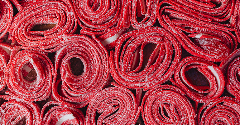
Confirmed: California bans four ‘toxic’ food additives
10 Oct 2023
Four food additives, including the colouring Red No. 3, will be banned in food in the US state of California over safety concerns, with public health campaigners hoping this will spark a nationwide ban in the coming years.
Read more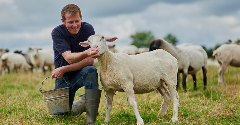
Advocacy groups condemn EU Commission for backpedalling on animal rights
3 Oct 2023
Amid rumours that the EU may abandon its plans to improve animal welfare in farming and end the use of cages, many stakeholders have condemned this possibility and urged the EU to reconsider.
Read more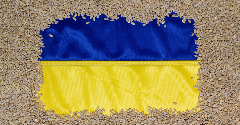
Poland and Ukraine attempt to resolve grain dispute
29 Sep 2023
Poland and Ukraine have begun talks to try to resolve a dispute regarding the ban on Kyiv’s grain imports that prompted Kyiv to file a lawsuit to the World Trade Organization.
Read more
The EU may be set to scrap its sustainability commitments
27 Sep 2023
A speech delivered by President Ursula von der Leyen last week inferred that the EU could be drawing back on its commitments to create a more sustainable and healthier food system.
Read more
Industry first: Mosa Meat becomes first cultivated meat startup to gain B Corp certification
11 Sep 2023
A first for the industry, Dutch cultivated meat company Mosa Meat announced that it has received B Corp certification and will soon apply for regulatory approval across the globe.
Read more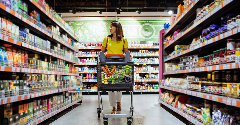
German supermarket trials climate-centric pricing model
29 Aug 2023
German discount supermarket Penny has trialled increasing product prices to mirror their health and environmental costs.
Read more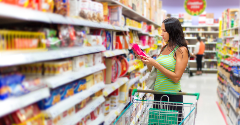
EPR fee delay spurs concerns over UK’s sustainability commitment
8 Aug 2023
The UK government’s decision to push back the introduction of fees for the Extended Producer Responsibility (EPR) due to inflation has raised doubts about whether this sustainability commitment will ever be realised.
Read more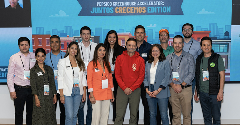
Latino-owned food startups tackle climate change
25 Jul 2023
A growing list of Latino-founded food and beverage startups in the US are putting sustainability at the forefront of their businesses for the sake of the planet.
Read more